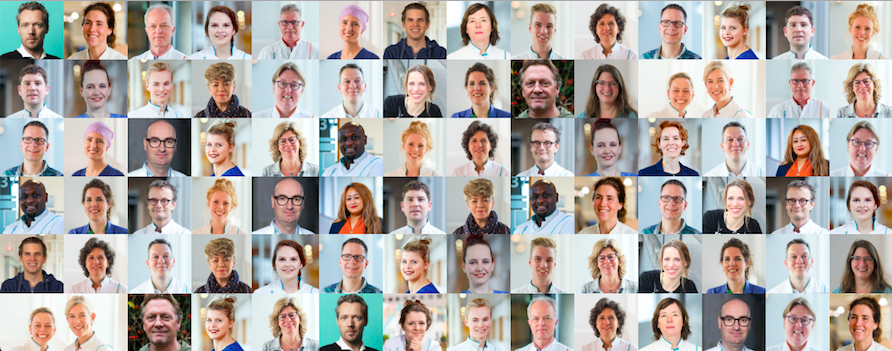Phd candidate 'Deep learning for Medical Image Quantification, Detection and Diagnosis'
Phd candidate 'Deep learning for Medical Image Quantification, Detection and Diagnosis'
You cannot apply for this job anymore (deadline was 4 Sep 2017).
Browse the current job offers or choose an item in the top navigation above.
Job description
Imaging is a central part of medicine. Computers can potentially extract more information from images, more reliably, and more accurately than human readers. This is exemplified by recent results in deep learning, currently the most active research area within machine learning and computer vision, and the topic of over 300 (mostly recent) papers in medical image analysis.
We have six fully funded positions available for developing novel algorithms and applications for detection and quantification of: lung disease in chest computed tomography and chest radiography, breast cancer on mammograms and breast tomosynthesis, eye disease in fundus photographs and optical coherence tomography, prostate cancer and prostate cancer metastases in MRI, and several applications in digital histopathology.
Positions are funded in national and European projects. In several projects, there is a direct collaboration with companies such as Philips Healthcare, Siemens Healthineers, Thirona, ScreenPoint and Delft Imaging Systems. We closely work with clinicians in all projects, and collect and extensive data sets with expert annotations. A team of scientific programmers is supporting our deep learning research, maintaining a large cluster of computers equipped with high-end GPUs for large scale experimentation.
Specifications
- max. 36 hours per week
- Nijmegen View on Google Maps
Requirements
Positions can be filled by either PhD students or postdocs.
You should be a creative and enthusiastic researcher with a MSc/PhD degree in Computer Science, Data Science, Physics, Engineering or Biomedical Sciences or similar, with a clear interest in machine learning, deep learning, image analysis and an affinity with medical applications. Good communication skills and expertise in software development, preferably in Python/C++, are essential. Experience with deep learning is a pre.
Conditions of employment
Terms of employment
The PhD position has the standard salary and secondary conditions for PhD students in the Netherlands. Your performance will be evaluated after 1 year. If the evaluation is positive, the contract will be extended by 3 years. The research should result in a PhD thesis. See also this page with some general information about doing a PhD in our group.
Scale 10A: max. € 40116 gross income per year at full employment (incl. vacation bonus and end of year payments)
Employer
Radboudumc (university medical center)
The Radboudumc center advances human knowledge by conducting biomedical, translational and clinical research in order to improve wellbeing.
Our key strength is medical life-sciences and clinical practice, with an impressive infrastructure comprising state-of-the-art technology platforms and (translational) research facilities. The Radboudumc is therefore uniquely positioned in the emerging Euregio and Dutch healthcare infrastructure to play a leading role in the new healthcare paradigm of prediction, prevention and personalised medicine.
The Radboudumc focuses on scientific health challenges of today, with an eye on emerging diseases of the future.
Our mission: ‘to have a significant impact on healthcare’.
Department
Radiology and Nuclear Medicine
The Diagnostic Image Analysis Group (DIAG) is a research division of the Department of Radiology and Nuclear Medicine of the Radboud University Medical Center Nijmegen. Nijmegen is the oldest Dutch city with a rich history and one of the liveliest city centers in the Netherlands. Radboud University has over 17,000 students. Radboud UMC is a leading academic center for medical science, education and health care with over 8,500 staff and 3,000 students.
The focus of the Diagnostic Image Analysis group is the development and validation of novel methods in a broad range of medical imaging applications. Research topics include image analysis, image segmentation, machine learning, and the design of decision support systems. Application areas include neuro, breast, prostate, lung and retina imaging and digital pathology. Key to the success of the group is close cooperation with clinicians. Currently the group consists of around 40 researchers. Check our deep learning paper overview to get an idea of our work in this field.
:fill(white)/logos/umcr-en-wide.png)
